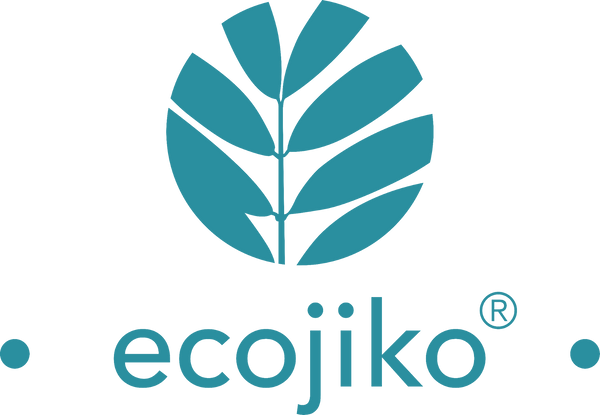Spring has sprung, and with it comes a growing movement that's transforming the way we view our lawns: No Mow May. So, What is No Mow May? It's a simple yet powerful initiative encouraging homeowners to resist the urge to mow their lawns throughout the entire month of May. This seemingly small act can have a significant positive impact on our local ecosystems, particularly for the pollinators that are so vital to our gardens and our planet. So, put away the lawnmower, embrace the wildness, and let's delve into why celebrating No Mow May 2025 is a wonderful way to make a real difference.

Understanding No Mow May
The concept of No Mow May is simply straightforward, give your lawn a break from the mower for the month of May. This allows grasses and wildflowers to flower undisturbed. Originating in the UK with Plantlife, a conservation charity dedicated to wild plants, the initiative has gained traction globally as awareness of pollinator decline has grown. It's not about neglecting your garden, it's a conscious decision to prioritise biodiversity during a crucial time for emerging insects. Forget the perfectly manicured green carpet for a few weeks and embrace a more natural, textured landscape.
The Buzz About Bees - Why Dandelions and Wildflowers Matter
Speaking of wildflowers, let's talk about the unsung heroes of the early spring garden, dandelions. Often the first splashes of vibrant yellow we see, these tenacious plants are a vital lifeline for bees and other pollinators emerging from their winter slumber. Their bright flowers offer a rich source of nectar and pollen, providing essential fuel for these hardworking insects as they begin their foraging season. Without these early food sources, pollinator populations can struggle to build strength and numbers. So, when you see those cheerful yellow heads popping up in May, resist the urge to banish them as they are nature's welcome sign for hungry bees! How does No Mow May help pollinators? Allowing dandelions and other early bloomers to flourish provides a crucial food buffet at a time when other floral resources may be scarce.
Composting for a Wilder Future - Connecting Lawn Care and Soil Health
While we're letting nature take the lead above ground, let's consider what's happening beneath our feet and how we can contribute to a healthier garden in the long run through composting. Composting is the brilliant process of recycling organic waste into nutrient-rich humus, which acts as a fantastic natural fertiliser for your garden. It improves soil structure, retains moisture, and reduces the need for chemical inputs.
At ecojiko, we believe in closing the loop on sustainability. Did you know that when your trusty Long-Handled Bamboo Dish Brush or Eco Bamboo & Sisal Pot Scrubbing Brushes reach the end of their scrubbing days, the natural bamboo handles can be broken down and added to your home compost? Similarly, our wonderful Swedish Dish Cloths, made from biodegradable cellulose and cotton, can also be composted after their many uses in your kitchen. By embracing No Mow May and composting our natural household items, we're creating a cycle of sustainability that benefits our gardens and reduces landfill waste.

The Wider Benefits of a Wilder Lawn
The benefits of No Mow May extend beyond just providing food for bees. An unmown lawn creates a more diverse habitat, supporting a wider range of beneficial insects, including ladybugs (natural pest controllers!), ground beetles, and even small mammals like hedgehogs who rely on longer grass for shelter and foraging. This increase in biodiversity contributes to a healthier and more resilient ecosystem right in your backyard.
Embracing the Beauty of the Wild
We understand that the idea of an unmown lawn might conjure images of untidiness. However, No Mow May is about embracing a different kind of beauty – the wild, natural charm of a lawn teeming with life. You might be surprised by the delicate wildflowers that emerge when given a chance to bloom. If you're concerned about a completely unkempt look, consider mowing just the borders of your lawn to create a visual frame, signalling that this is an intentional act of conservation.
No Mow May in Action - Practical Tips and How-To Guide
Here are a few extra tips:
- Inform Your Neighbours: Let your neighbours know why you're embracing a wilder lawn you might even inspire them to join in!
- Observe and Enjoy: Take the time to observe the different plants and insects that appear in your unmown lawn. It's a fantastic opportunity to connect with nature.
- Plan for After May: Once May is over, you can gradually resume mowing, perhaps starting with a higher blade setting to avoid cutting down late-blooming wildflowers too drastically.
Community and Connection
The No Mow May movement is growing year after year, connecting individuals, communities, and organisations in a shared effort to support pollinators. Sharing your experiences and seeing others participate can be incredibly inspiring. Check out local gardening groups or online communities to see if there are No Mow May initiatives in your area.
Ecojiko and Your Wilder Garden
As you embrace a wilder garden this May, remember that even small gardening tasks can be approached sustainably. After tending to your blooming lawn and observing the busy bees, you might find your hands a little grubby. Our Bamboo Nail Brush, with its natural bristles, is the perfect eco-friendly tool for scrubbing away that gardener's dirt! Made from sustainable bamboo, it's a durable and planet-friendly way to keep your hands clean.

Addressing Concerns
Some common concerns about No Mow May include the potential for increased pests or allergies. However, a temporary increase in lawn length is unlikely to cause significant issues. In fact, a more diverse lawn can actually attract beneficial insects that help control pests. Regarding allergies, while some weeds like ragweed can be problematic, the early bloomers encouraged by No Mow May are not typically major allergy triggers.
Encouraging Long-Term Sustainable Lawn Care
While No Mow May is a fantastic initiative, adopting more sustainable lawn care practices throughout the year can have an even greater impact. Consider mowing less frequently, raising the blades on your mower to encourage taller grass (which helps retain moisture and shade out weeds), and even overseeding with wildflower mixes to create a permanent pollinator-friendly habitat.
This No Mow May 2025, let's choose to celebrate the wild beauty of our lawns and the vital role they play in supporting pollinators. By putting away the mower and embracing a more natural approach, we can all contribute to a healthier, more vibrant environment, one buzzing lawn at a time.





